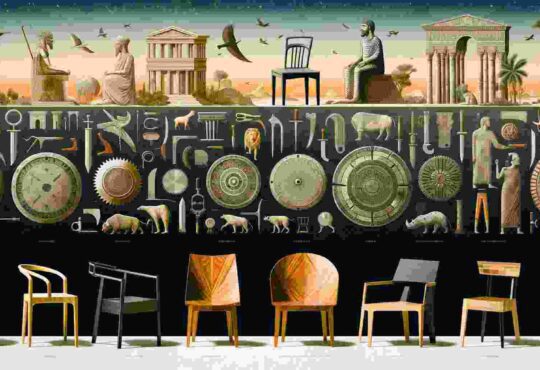Mohamed Al Fayed, an Egyptian businessman, left an indelible mark on the world through his acquisitions and clashes with the British establishment. Let’s delve into his fascinating life:
- Early Life and Career:
- Born on January 27, 1929, in Alexandria, Egypt, Al Fayed built a remarkable business empire during his career.
- He acquired prestigious holdings, including the Ritz Hotel in Paris and the iconic Harrods department store in London.
- His son, Dodi Al Fayed, tragically lost his life alongside Princess Diana in a car crash in 1997.
- Business Ventures:
- Al Fayed’s journey began when he wed Samira Khashoggi (later divorced), sister of Saudi Arabian businessman Adnan Khashoggi.
- He moved to Genoa, Italy, in 1958 and then to London in 1964.
- As an adviser to the Sultan of Brunei, he founded his own shipping company, Genevaco.
- In 1972, he launched the marine repair yard International Marine Services in Dubai.
- In 1974, Al Fayed moved to Britain, adding “al-” to his name, and acquired vast holdings, including the Ritz Hotel in Paris (1979).
- Clashes with the British Establishment:
- His contentious relationship with the British establishment was well-documented.
- In 1985, he outbid mining giant Lonrho to purchase the House of Fraser, which controlled Harrods.
- Accused of misrepresenting his ability to finance the takeover, Al Fayed proved his solvency.
- Despite this, his wealth remained suspect in some quarters.
- In 1986, he signed a 50-year lease on the Parisian villa of the Duke and Duchess of Windsor, restoring it to its former glory.
- His involvement in the “cash-for-questions” scandal further strained his relationship with the establishment.
- Passing:
- Al Fayed passed away peacefully of old age on August 30, 2023, surrounded by loved ones.
- His extraordinary character and impact on business and society will be remembered.

Life of Mohamed al-Fayed
Mohamed al Fayed was an Egyptian businessman who made significant acquisitions during his career. His notable holdings included the Ritz Hotel in Paris and the iconic Harrods department store in London.
However, his life was marked by clashes with the British establishment, particularly after the tragic car crash that claimed the lives of his son Dodi and Diana, Princess of Wales, in 1997.
- Fayed’s early years were spent in Alexandria, Egypt. Despite later claiming a birth year of 1933, official records confirm his birth in 1929. In 1954, he married and later divorced Samira Khashoggi, sister of the renowned Saudi Arabian businessman and arms dealer Adnan Khashoggi.
- Adnan subsequently employed Fayed in his import-export business.
- Fayed’s journey took him to Genoa, Italy in 1958, and then to London in 1964. As an adviser to the Sultan of Brunei, he founded his own shipping company called Genevaco.
- In 1972, he established the marine repair yard International Marine Services in Dubai.
- In 1974, Fayed moved to Britain, where he added “al-” to his name and acquired substantial assets.
- Notably, he secured ownership of the Ritz Hotel in Paris in 1979. His contentious relationship with the British establishment was well-documented.
- In a fierce takeover battle in 1985, he outbid mining giant Lonrho to acquire the House of Fraser, the holding company controlling Harrods. Despite proving his solvency, doubts about his wealth persisted in some circles.
Fayed’s intriguing life also included signing a 50-year lease on the Parisian villa of the Duke and Duchess of Windsor in 1986, which he meticulously restored.
For this effort, he received the Plaque de Paris, the city’s highest honor.
The Fascinating History of Harrods
Harrods, the iconic department store in London, has a rich and captivating history. Let’s delve into its remarkable journey:
- Founding and Early Years:
- Charles Henry Harrod established Harrods in 1849 as a modest grocery store. It began in a single room, where it mainly sold tea and groceries.
- Over time, Harrods steadily expanded its offerings, catering to the needs of wealthy customers. By 1880, it had transformed into a thriving department store, selling everything from medicines and perfumes to clothing and food.
- The Great Fire and Rebuilding:
- In 1883, disaster struck when a fire destroyed the store. Undeterred, the owners embarked on a reconstruction journey.
- With the assistance of architect Charles William Stephens, Harrods emerged from the ashes with a palatial style. Its frontage featured terracotta tiles adorned with cherubs, swirling Art Nouveau windows, and a baroque-style dome.
- Innovations and Expansions:
- Harrods was at the forefront of innovation. In 1898, it introduced one of the world’s first escalators.
- By the 1890s, Harrods had established a bank, an estate agency, and even a department selling exotic pets (which lasted until the 1970s).
- Ownership Changes and Controversies:
- In 1959, the British department store group House of Fraser acquired Harrods.
- However, in 1985, the store returned to private ownership when Egypt-born businessman Mohamed Al Fayed and his brother Ali purchased House of Fraser, including Harrods.
- The takeover was contentious, and Al Fayed relationship with the British establishment was closely scrutinized.
- Despite the controversy, Al-Fayed invested significantly in Harrods, elevating it to a global luxury brand.
- Harrods Today:
- In 2010, Al-Fayed sold Harrods to Qatar Holdings for a reported £1.5 billion.
- The store remains a symbol of luxury and extravagance, attracting 15 million customers annually.
- Harrods continues to be a popular tourist attraction in London, known for its celebrity-endorsed sales, food hall, and signature green bags.
Indeed, Harrods is more than just a store; it’s a timeless institution where dreams are woven into the fabric of luxury and opulence

Mohamed Al Fayed and the Ritz Paris
Mohamed Al Fayed, the Egyptian businessman, made a significant mark on the prestigious Ritz Paris. Let’s delve into the fascinating story behind his ownership of this iconic hotel.
- Acquisition of the Ritz Paris:
- The Ritz Paris was acquired by Mohamed Al Fayed in 1979 for $20 million from the Ritz Group.
- The hotel, with its storied history, had counted royalty, celebrities, and other famed personalities among its guests.
- Mohamed Al Fayed acquisition came after the death of Charles Ritz, the son of Swiss hotelier César Ritz, who had originally built the hotel.
- Monique Ritz, Charles’s widow, briefly owned the Ritz Paris before Al Fayed took over.
- The Ritz Paris Under Al Fayed’s Ownership:
- Mohamed Al Fayed had ambitious plans for the Ritz. He aimed to refurbish the hotel in the image of its founder, César Ritz.
- The renovation was extensive, with an investment of $50 million to restore the hotel’s old elegance.
- Rooms, bars, and restaurants were revamped, and new amenities like a swimming pool, health club, and spas were added.
- The iconic Little Bar even transformed into the Hemingway Bar.
- If Mr. Ritz were to visit today, I’m sure he’d be proud.” – Al Fayed
- The Ritz Paris in Popular Culture:
- The sale of the Ritz Paris by Monique Ritz to Mohamad Al Fayed is depicted in Season five of The Crown.
- In real life, Mohamed Al Fayed and his brothers—Ali Al Fayed and Salah Al Fayed—jointly acquired the Ritz.
- The Fayed family was more than just business associates; they were raised and did everything together.
- Legacy and Beyond:
- Al Fayed’s influence extended beyond the Ritz Paris. He acquired a controlling interest in Fulham Football Club and launched the luxury convenience store Harrods 102.
- This was followed by the sale of Harrods to Qatar Holding and the sale of Fulham.
The Ritz Paris continues to reflect Al Fayed’s vision and commitment, combining classic elegance with contemporary conveniences in the heart of Paris.
The Enigma of Mohamed Al Fayed
Mohamed Al Fayed, the enigmatic Egyptian tycoon, has left an indelible mark on the world stage. His life was a tapestry woven with intrigue, wealth, and controversy. Let us delve into the mosaic of his existence:
- Harrods Acquisition: In 1985, Mohamed Al Fayed stepped into the limelight as the new owner of Harrods, the iconic London department store. However, the origins of the £573 million he used to secure control of its parent company, House of Fraser, remained shrouded in mystery. His financial maneuvers blurred the lines between truth and deception, prefiguring the era of “fake news.”
- Pharaoh Persona: Mohamed Al Fayed transformed from an unassuming Egyptian into the fabulous pharaoh of Harrods. His wealth, derived from oil, property, and shipping, elevated him to legendary status. Yet, beneath the glittering facade, he concealed a web of half-truths and fabrications.
- The Battle for Harrods: Al Fayed’s acquisition of Harrods triggered a fierce rivalry with Roland “Tiny” Rowland, the chief executive of Lonrho. Rowland underestimated Al Fayed, believing him to be a mere pawn. But Al Fayed had grander ambitions – to claim the world-famous store with its royal warrants. Their feud unfolded like an epic drama, leaving scars on both men.
- The Harrods Prize: Mohamed Al Fayed had to prove that he purchased Harrods with his own funds. Whose money he wielded remained a mystery, fueling speculation. Rowland’s miscalculation cost him dearly; Mohamed Al Fayed outmaneuvered him, forever altering the course of their intertwined destinies.
- Legacy and Controversy: Al Fayed’s legacy is etched in the annals of business lore. His journey from obscurity to prominence mirrors the twists and turns of a pharaonic saga. Whether hero or antihero, he defied convention, leaving us with a tale of wealth, power, and enigma.
As the sands of time settle, Mohamed Al Fayed’s name will echo through history – a complex figure whose truth remains as elusive as the shifting desert dunes.
Harrods acquisition Mohamed Al Fayed
The story of Mohamed Al Fayed’s acquisition of Harrods is a fascinating tale of ambition, intrigue, and business rivalry. Let’s delve into the details:
- Mohamed Al Fayed, often referred to as the “hero from zero,” embarked on a remarkable journey to acquire the iconic London department store, Harrods. His energy, cunning, determination, and persuasive skills played a pivotal role in this saga.
- Background and Acquisition:
- In 1985, Al-Fayed orchestrated a controversial takeover, beating the mining giant Lonrho to purchase the House of Fraser for a staggering £615 million. As part of this bid, he acquired the prestigious Harrods.
- Lonrho’s chief executive, Roland “Tiny” Rowland, underestimated Al-Fayed, dismissing him as “Tootsie.” Rowland believed that Al-Fayed would help Lonrho bypass a Monopolies Commission ban on purchasing House of Fraser. The plan was for Lonrho to temporarily transfer its nearly 30% stake in House of Fraser to Al-Fayed, who would later sell it back at a profit.
- However, Al-Fayed had grander ambitions. He saw Harrods as an opportunity to elevate his social status by owning the world-renowned store with its coveted royal warrants.
- The Feud:
- Within 24 hours of the sale, Rowland realized that Al-Fayed had no intention of being a mere stooge. Mohamed Al Fayed determination to retain Harrods irked Rowland, who had coveted the prize for years.
- The ensuing battle between the two men became one of the most bitter, expensive, and personal feuds ever witnessed among business rivals.
- Even after Rowland’s death in 1998, the feud persisted in the courts.
- Mohamed Al Fayed Legacy:
- Mohamed Al Fayed’s relationship with the British establishment was complex. His involvement in the “cash-for-questions” scandal in 1994, where he admitted to paying politicians to table parliamentary questions on his behalf, strained his ties further.
- Tragically, Mohamed Al Fayed son, Dodi, lost his life alongside Princess Diana in a car crash in Paris in 1997. Al-Fayed accused Prince Philip of ordering British security services to kill Diana and prevent her from marrying a Muslim and having his child.
- In 2010, Al-Fayed sold Harrods to Qatar Holding, the investment arm of Qatar’s sovereign wealth fund, for a reported sum of around £1.5 billion.
Mohamed Al Fayed’s journey from humble beginnings to Harrods ownership is a captivating tale of ambition, determination, and the pursuit of social status.
His legacy remains intertwined with the iconic store that continues to grace London’s Knightsbridge district.






